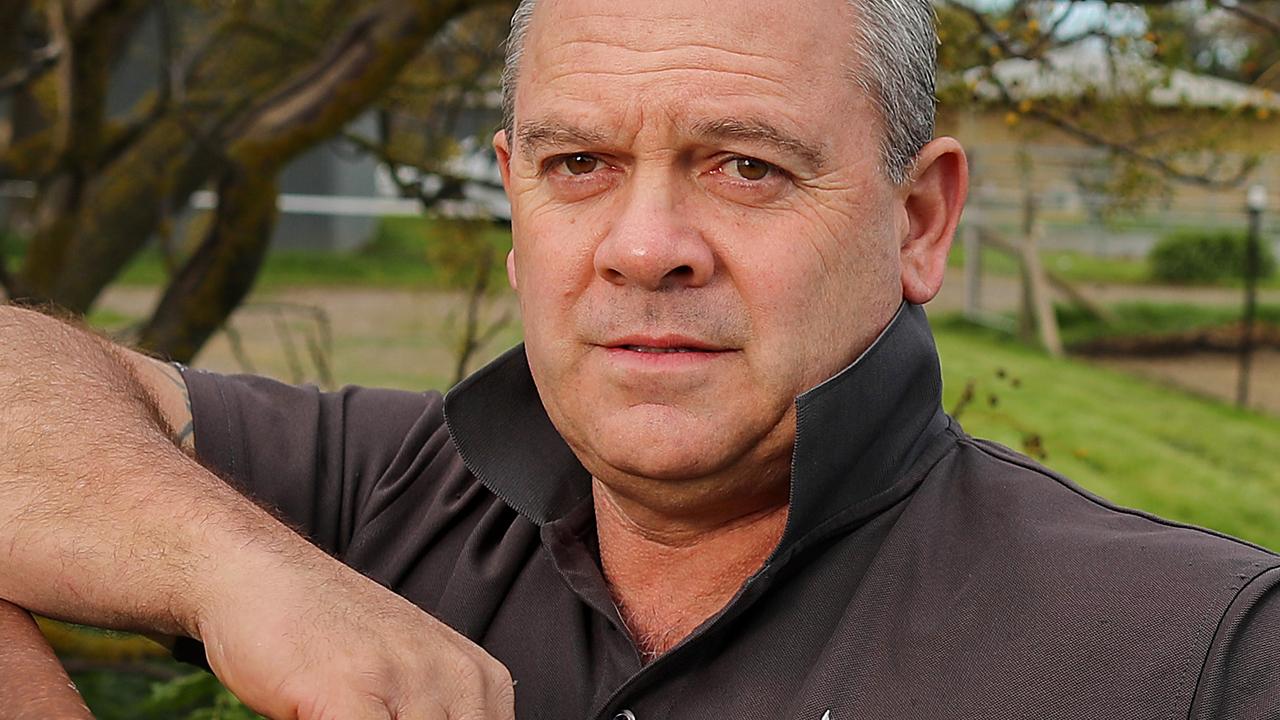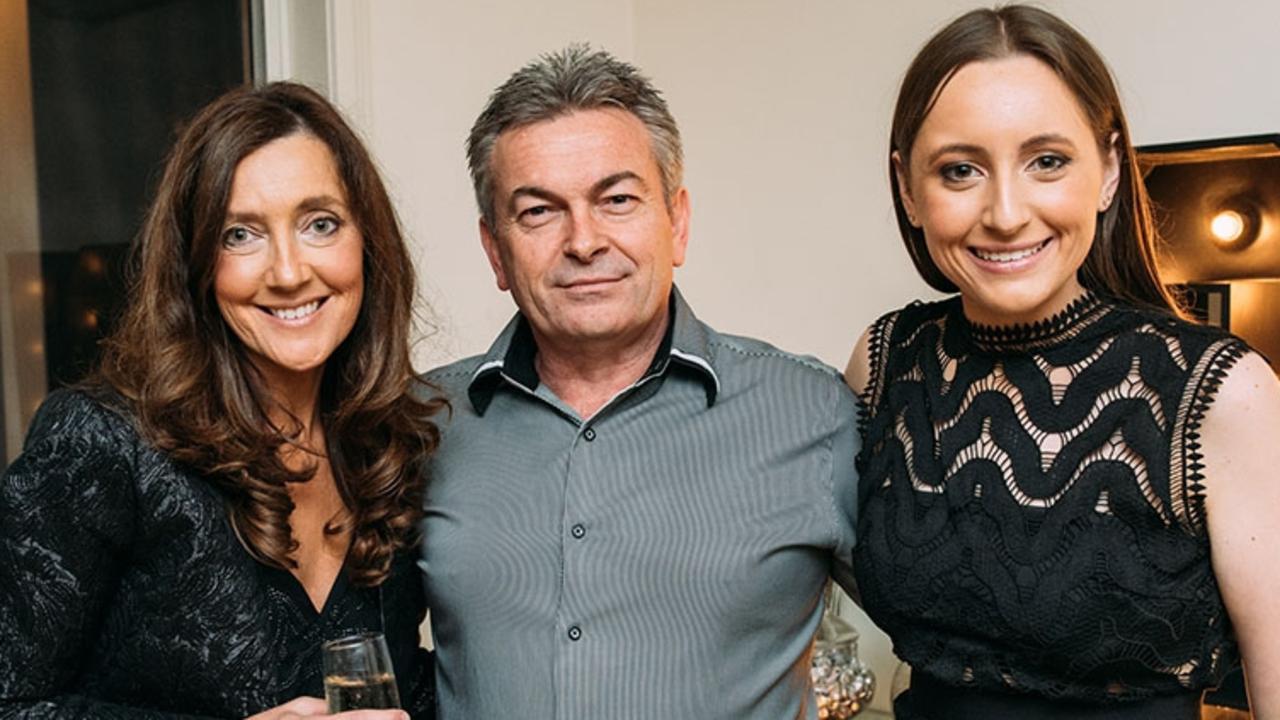Murder most foul when clear case of mistaken identity, writes Andrew Rule
MISTAKES don’t come much bigger than murdering the wrong person. The amazing thing is that it has happened so often, writes Andrew Rule.
Andrew Rule
Don't miss out on the headlines from Andrew Rule. Followed categories will be added to My News.
MISTAKES don’t come much bigger than murdering the wrong person. The amazing thing is not that it happens at all — but that it has happened so often.
When a harmless young man named Muhammed Yucel was shot dead by killers paid to murder a musclebound ex-“bikie” living nearby, it was just the latest case of slow brain and quick trigger finger.
“Mo” had been playing video games with friends on May 2 when would-be hitmen drove to the wrong house in Keysborough and shot him in the driveway, killing him and wounding two other innocent men.
Police are sure the intended target was Farshad Rasooli, a gym-pumped gorilla who fell out with the Mongols Motorcycle Club last year. A week after dodging the bullet with his name on it, Rasooli was charged with possessing a handgun, steroids and other drugs.
KEYSBOROUGH DRIVE-BY MURDER: THE MAN BIKIES MEANT TO SHOOT

Rasooli will take his chances in Dandenong Court this week but he has already had the lucky break of a lifetime. That puts him in the same small club as Carmel Kypri, wife of a small-time crook with big-time enemies — and no doubt the intended target of the cretins who shot Jane Thurgood-Dove in front of her children in 1997.
It was Oaks Day, November 6, when Jane returned to her house in Muriel St, Niddrie, after picking up two of her three children from school. A Commodore immediately blocked in her car, and a pot-bellied man with a handgun jumped out and chased the terrified woman, shooting her in the head three times.
It was the beginning of an investigation that has lasted so long that two men involved in the evil debacle are dead. Stephen Mordy died of a heart attack at Geelong in 2000. And Jamie Reynolds drowned at Barwon Heads in 2006.
Carmel Kypri, like Jane Thurgood-Dove, was blonde, had small children and lived in a corner house in Muriel St. Her husband, Peter Kypri, had fallen out with a brooding criminal plotting revenge.
For months before Jane’s murder, the Kypris had taken precautions. Every night after school, their children went to a relative’s house.
When this reporter knocked on their door soon after the murder, a twitchy Carmel Kypri conceded — through a mesh security door — that she was probably the real target. Police later confirmed that theory.
Despite a $1 million reward, it seems unlikely anyone will be charged over the case, although police suspect they know who commissioned the bungled hit.
Some murdered-by-mistake cases are so obscure almost no one recalls them. Such as the sinister drowning in 1974 of a rural worker unlucky enough to share the name Joseph Patrick Keenan with an agricultural inspector who had fallen foul of the Griffith mafia.
Keenan the agricultural inspector naively informed local police he’d seen a group of Calabrian farmers packing marijuana into green plastic bags in a farm shed near Griffith. He said one of the “packers” was a well-known local winemaker.


The day after he had reported the cannabis to a markedly uninterested detective, John Kenneth Ellis, the inspector took a call warning him they knew he’d been to the police.
The call was chilling. But not as chilling as when the body of Keenan’s namesake was found in an irrigation channel a few weeks later. The drowned man was no relation to the informer but the “coincidence” was terrifying.
The same policeman, Sgt Ellis, headed an “investigation” into the unfortunate Keenan’s death. He told the inquest the dead man was an alcoholic and there were no suspicious circumstances. Ellis and two other bent cops were later jailed over other matters.
The fact that the presumed killers and corrupt police got away with it so easily helped sign the death warrant of Donald Mackay, the Griffith businessman and political candidate assassinated in the town three years after the Keenan “drowning”.
Mackay, an anti-marijuana crusader in a district riddled with “Calabrese corn”, has never been found. His presumed killer, hitman James Frederick Bazley, has never divulged what happened the night Mackay was shot in a pub carpark.
Bazley stuck to the code of silence. So did a much less-feared man, Gerald David Preston, who graduated from stamp collector to dodgy second-hand dealer to receiver of stolen goods. He was a nobody but perhaps thought he had graduated to something bigger after serving time with a notorious Hells Angel, Terrence Tognolini.
The Hells Angels had a (drug-related) dispute with one Les Knowles, who ran a car repair business in the Adelaide suburb of Lonsdale. In late 1996, Tognolini supplied his former jail buddy with a stolen Luger pistol and $10,000.
An Adelaide detective would later describe Preston as cool, calculating and meticulous, but this might have been for the benefit of the murder jury. In reality, it would seem that as a hitman Preston made a good stamp dealer. The only prerequisite he had for the job was absolute callousness.
Preston and a novice getaway driver drove to Les Knowles’ repair shop on August 15, 1996. They entered the office and Preston confronted Les Knowles and a mechanic, Tim Richards.
“Are you Les?” he demanded. Both men said they did not know who “Les” was. Preston shot them both in the head. Then he went into the workshop and asked a third man, Kym Traeger, if he was Les. Traeger realised that no matter what he said it wouldn’t end well. He ducked the shot and ran, and the bullet only wounded his wrist.
Preston had killed Tim Richards just for being there — and had attempted to kill the third man because he wasn’t sure which of the three was Knowles. It was a bizarrely stupid crime. Instead of ditching the murder weapon, Preston gave it to a family member — along with ammunition that could link him to the crime.

And he would reveal all to his estranged wife, Vicki Jacobs, mother of their small boy, Ben. She would later tell a court Preston had visited her in Melbourne after the killings and told her everything.
Vicki would decide to make a fresh start with little Ben, moving to near Bendigo. And she refused to go into witness protection after agreeing to give evidence against Preston in 1998 after he was charged with the Adelaide murders.
Her brave decision to do the right thing condemned her to death. After four days and 500 pages of her testimony, Preston was jailed for 32 years.
On a Saturday morning in mid-1999, a killer slipped into Vicki’s unit and shot her with a silenced weapon as she slept with six-year-old Ben.
Her bitter ex-husband had the motive of revenge to organise this cold-blooded crime, but didn’t. It was more likely a message from the Hells Angels — for him and for anyone else — not to give evidence against the gang.
Preston, now 58, is still in Yatala Prison.
Murder doesn’t come much more callous than when committed just for money. But prison escapee and hired gun Roy “Red Rat” Pollitt not only killed the wrong man — he did it deliberately just because the victim had seen his face.
It happened on the night of September 18, 1984. Pollitt was a career criminal on the run after a NSW jailbreak. He fled to Melbourne and was hired by Dennis “Mr Death” Allen to kill a drug dealer, Alan Williams, at his Lower Plenty home.
Williams was tipped off to the ambush plan by two detectives and so did not go home. But the target’s brother-in-law, Lindsay Simpson, was not in the loop. When Simpson drove home from work that night, Pollitt was waiting to kill Williams.
The “Red Rat” forced the innocent man out of the car and made him kneel before shooting him in the head, despite the victim pleading “my name is Simpson”.
Pollitt would spend most of his life in prison. The nearest he came to telling the truth about the execution of Lindsay Simpson was — while still claiming his innocence — to tell a crime reporter that the murdered man had clearly been “in the wrong place at the wrong time”.
He added: “I have been told that (the gunman) ran down the drive and wasn’t wearing a balaclava because it was at night. He looked in the car and thought ‘F---, that ain’t Williams’. But he knew the guy would be able to identify him and tell Williams, who would come after him.
“So it wasn’t a case of mistaken identity, it was a matter of survival.”
Life is cheap to predators, except when it is their own.



